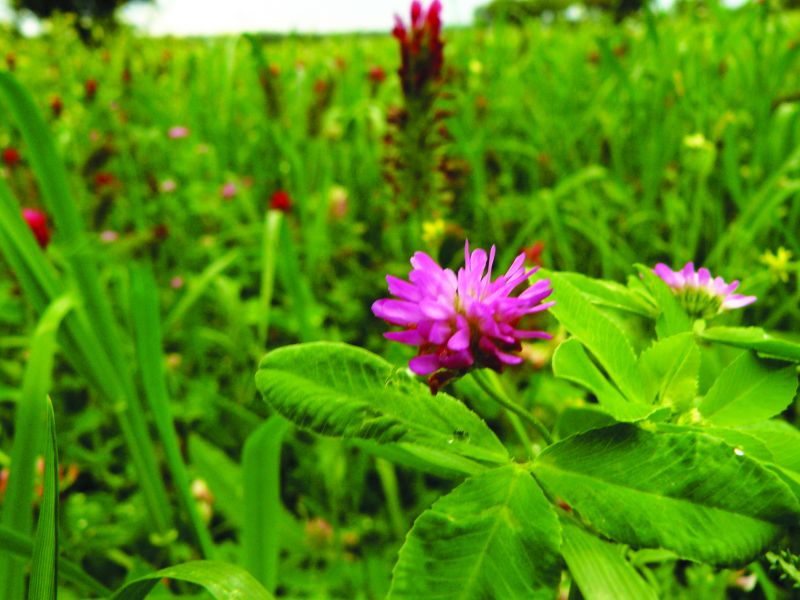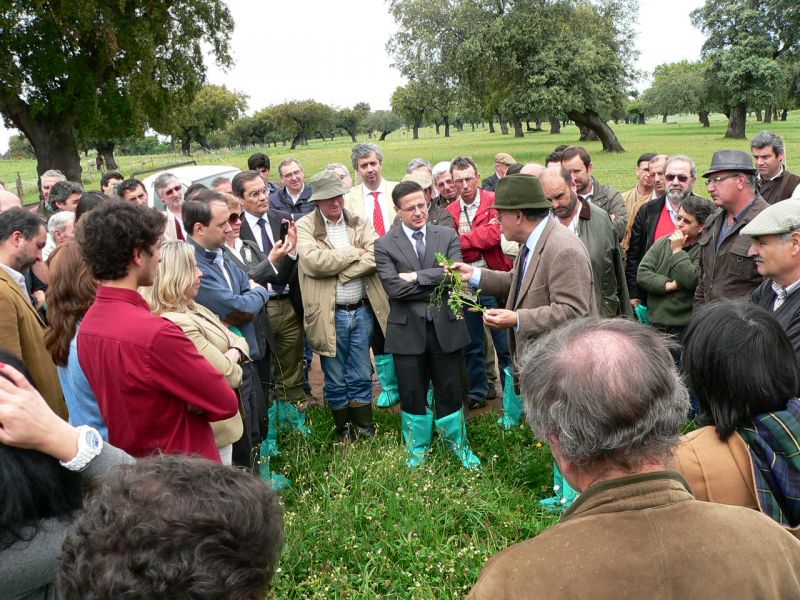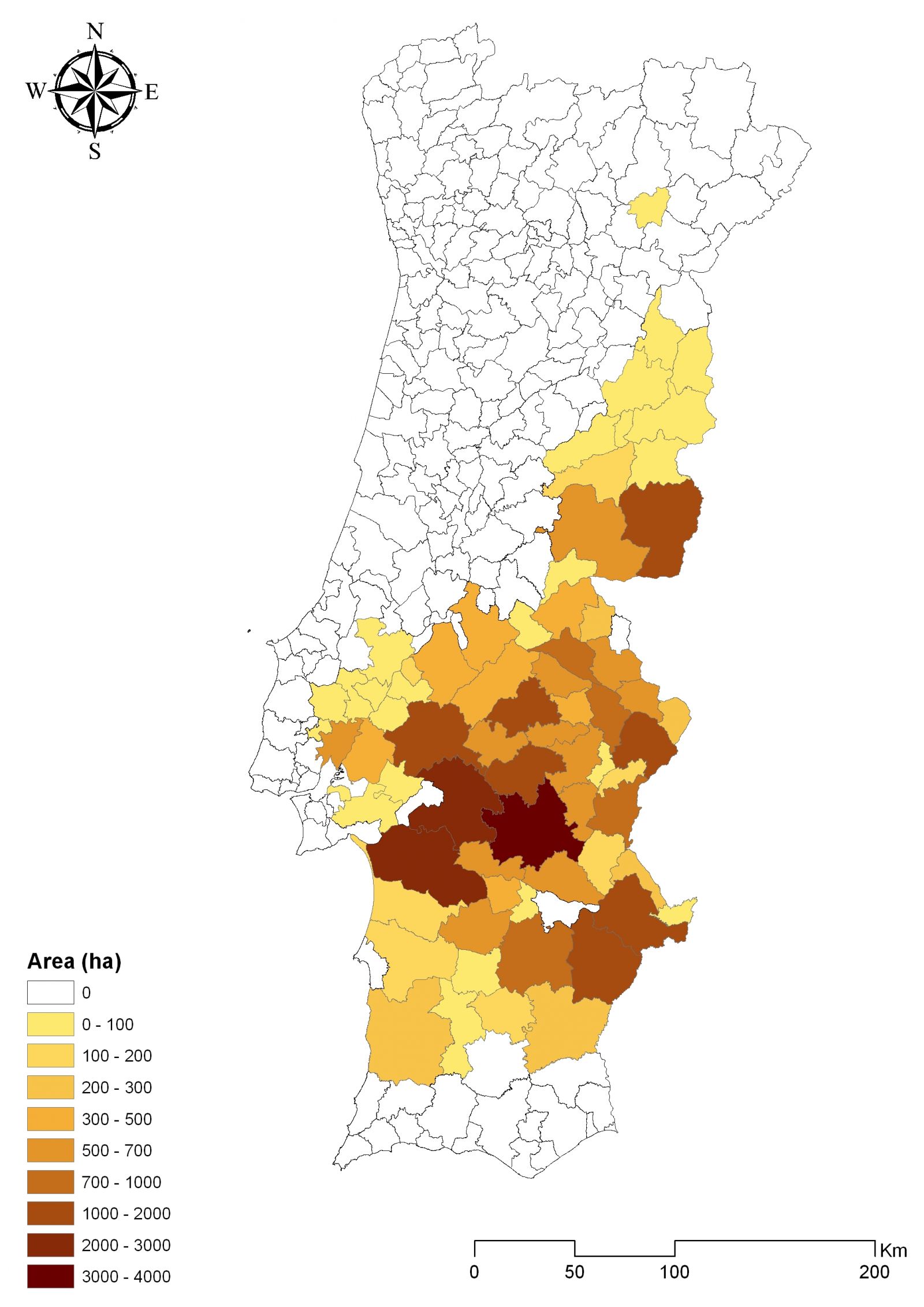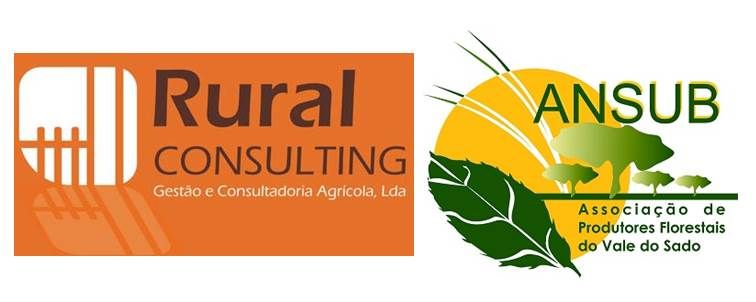Sown Biodiverse Pastures Project
50,000 new hectares of Sown Biodiverse Pastures were sown under the project between 2009 and 2012, contributing to the sequestration of 1 million tons of CO2. The 1000 farmers who provided this environmental service were paid, making this the first demonstration project, on a large scale, of how society can compensate farmers for the environmental benefits generated by good agricultural practice.
The Sown Biodiverse Pastures project aimed to promote the sustainability of agriculture and the mitigation of environmental impact through the enhancement of environmental services in Sown Biodiverse Permanent Pastures.
Specifically, the objectives of the project were:
- an increase in the area of these pastures at national and international levels, focusing on degraded areas with low productivity;
- a detailed characterization of environmental services associated with these pastures, as well as the identification and development of mechanisms for evaluating these environmental services and paying farmers for carrying them out;
- a contribution to achieving the national objectives of the Kyoto Protocol.
The innovative nature of the “Terraprima” Project lies in the application of “Biodiversity Engineering" to improving environmental and economic performance of crop and livestock farming on a large land scale and with the direct involvement of farmers who constitute the Terraprima Network.
At this point it is no longer possible to join the project since sowing campaigns were run between 2009 and 2012 with technical support from Terraprima.
The Sown Biodiverse Pastures (SBP) project is the compensation of farmers for carbon sequestered by 2014 in areas of SBP sown in the years 2011 and 2012. Farmers who make commitments under contract by 2014 are paid depending on the year of installation. Recording the sequestration is done by multiplying the participating area by a predetermined sequestration factor obtained in previous studies. So, make sure that the sequestration occurs effectively through the use of best practices by farmers in the contracted area. To ensure that farmers know these practices, they receive technical support throughout the project. Monitoring visits are also conducted as well as monitoring by Terraprima in their capacity as managing entity.
On joining the project, farmers are attributed an entity that provides assistance in administrative matters, and an entity (which may be the same) which provides technical support. Technical support in the field consists of two visits: when preparing the pastures, and another during the project. However, remote technical support (phone, email) can be used whenever the farmer requests from the associated entity. Should any request to go beyond the limits of knowledge of the associated entity, Terraprima guarantee an answer to the farmer.
The support received by areas under this project is combinable with other systems of public and private compensation that are not related to carbon sequestration.
Farmers participating in the project have to meet compulsory Good Agricultural and Environmental Conditions (GAECs) resulting from CAP reform. Note that any farmer who is covered by the Single Payment Scheme, Agro-Environmental Measures and Maintenance of Agricultural Activity in Less Favoured Areas (ex Compensatory Allowances) is already required to comply with the GAEC and therefore eligible for the project.
The farmer must also fulfil the following obligations:
1. Carry out the correct preparation of the pasture, with the proper mix of seeds.
2. After preparing the pasture, nitrogen based fertilizer should not be applied.
3. After setting up the pasture, do not turn the soil.
4. Guarantee that pasture has at least six distinct species or varieties throughout each year and represents a minimum of 25% of the proportion of legume cover, measured by visual observation.
5. Carry out management in line with the level of forage production and carrying capacity of the natural environment, enabling the fruiting of fields.
6. Make available in the first year of support, analysis of land (ad hoc) accompanied by the respective recommendations from the laboratory where they are issued. Repeat the same type of analysis after a period of no more than four years. Carry out correct application of fertilizer on the basis of results obtained in analysis.
7. Sowing by harrowing and turning the soil with a physiographic index (IQFP) > 3 is not allowed. An IQFP of 3 is only permitted if taken according to the contour lines, with a maximum of 50 metres between lines, harrowed and prepared alternately, some one year and the others the next.
Failure to meet any of the preceding paragraphs will lead to the cancellation of the contract(s) on the portion of land which has been violated, and obliges the return of the payment, if already made, relating the land in question. The manager of each parcel of land must provide the promoting company with a pasture management plan for each pasture installed (installation - soil analysis; mechanical ground operations, fertilizers, liming with respective quantities; maintenance - shredders, fertilizers with respective amounts; livestock management).
In addition to the general commitments of the Project it is necessary to ensure that the mixtures are appropriate, that is, that they reproduce the results obtained in Agro Project 87 regarding the potential for carbon sequestration in sown biodiverse annual pastures rich in legumes system (PPSBRL).
Accordingly mixtures have to meet the following requirements:
- Comply with legislation regarding the acquisition and marketing of seed and forage mixtures.
- The seeds of several legumes in the composition of these mixtures should be inoculated with Rhizobium specific to each species, ensuring high rates of nitrogen fixation.
- Acquire appropriate mixtures for each specific situation, according to the soil and climatic conditions of the place where the installation takes place. Species and/or varieties used must be perfectly adapted to such conditions, otherwise they will not take root or will disappear quickly.
- Acquire mixtures that meet the requirements of the project with regard to biodiversity persistence and dose of sowing:
- The pasture must include a minimum of 25% legumes and has at least 6 different species or varieties throughout the duration of the contract.
- The sowing dose must be technically correct but not less than 20 kg/ha must be used.
5. Ask the supply companies for information and technical explanations about the application of the mixtures.
Part of the job of the company managing the project and of other entities that are on the ground is to provide technical support to farmers, thus helping them in the proper management of pastureland. This happens to some extent, by the existence of informational materials with technical recommendations. Some examples of recommendations are presented below. Note that these are just some general indications, primarily addressed to less well-informed farmers, and not firm commitments. In fact, the most correct practices will be assessed in the field and in each case, with the technical support team to help resolve project issues emerging from the establishment and management of the pastures.
It should be noted that the primary obligation is for farmers to ensure grass production with biodiversity and to show the required persistence in following the project during the term of the contract, accepting responsibility for all the operations and methods used.
Farmers who undertake installation and maintenance of these pastures are eligible for remuneration for carbon sequestration from 2 hectares. This can be cumulative with other support under the PRODER, namely support for agriculture and forestry investment and agri-environmental measures, among others.
The greater the total area sown each year, the greater the payment per hectare for each farmer. Depending on the area reaching the original objectives of the project, the following payments will be made:
|
Year of installation |
Total value of remuneration |
|
2009 |
Up to €200/ha, divided into equal parts (€ 66) for the years 2010, 2011 and 2012 |
|
2010 |
Up to €150 /ha, divided into equal parts (€75) for the years 2011 and 2012 |
|
2011 |
Up to €150 /ha, divided into equal parts (50 euros/year) for the years 2012, 2013 and 2014 |
|
2012 |
Up to €140/ha, divided into equal parts (70 euros/year) for the years 2013 and 2014 |
Terraprima Ambiental, as the proposer of the project, takes care of all the central management. Terraprima will be managing the payments to organizations associated with the project and to farmers, as well as performing checks.
Aid to farmers will be provided by individuals or companies, such as farmers' organizations, agricultural consultants or resellers of seeds. The entities providing technical support are those who have or aim to have qualified technicians to provide this support, and are certified by the technical team at Terraprima. Communication with and enlisting of farmers is also done by farmer organisations and other agricultural organizations. The communicating companies have as primary function the promotion of the Terraprima - Carbon Fund project among farmers. Furthermore they should assist farmers in matters pertaining to the contract, in compiling all the necessary documents, receipts, etc. In addition, each entity is responsible for establishing communication between farmers and Terraprima.
Based on a list of entities providing administrative support, farmers who celebrate the contact with Terraprima will have to choose an entity to represent them and assist in this process and inform this entity to start the work.
The choice can be geographical or based on other criteria chosen by the contractor. This support relates to the collection of pre-contractual documentation and information, sent at the same time, reception of contract filed by Terraprima and finally the validation of the contract and shipment to postal address.Farmers who install new areas are monitored technically by technical staff that supervise the whole process from the moment of sowing. The monitoring aims to see that the obligations of farmers are being adhered to ensuring successful installation and maintenance of pastures.
At different times of the year, visits have distinct main objectives:
- Checking the condition of sowing (September/October/November);
- Verification of conditions for germination and vegetative growth (December/January/ February);
- Verification of biodiversity, composition (% legumes), flowering and fruiting (March/April/May).
- Verification of conditions resulting from grazing pasture (July, August)
Based on requests the monitoring reports are completed.
Contact for Technical Team:
António Martelo
Email : amartelo@rc-ruralconsulting.com
Phone : 93 915 33 95
Philip Verdasca
Email : filipeverdasca@hotmail.com
Phone : 96 907 71 12
Pedro Silveira
Email : pcsilveira@ansub.pt
Telephone : 913 636 309Is all of the installed area remunerated?
No, the first two hectares are unpaid to cover fixed costs (for farmer) management, monitoring and technical support .
Is re-sowing of pastures allowed?
It depends on the situation. Pastures established after 1990 are not eligible for re-sowing.
How do I install and manage the pastures?
The list of eight farmers' obligations must always be fulfilled. The first of these is the correct installation and maintenance of pastures. These concepts are relative, varying with the specific conditions of where the pasture is. However, to reduce uncertainty, Terraprima gives general on site recommendations for installation and management of pastures. These recommendations are not, however, mandatory. The farmer can still follow the installation recommendations determined by the seed supplier and members of the Terraprima technical team, since the recommended rules are generic and can be improved upon.
Can the installation of pastures be performed using direct sowing?
Yes, the practice of direct seeding is allowed.
Do pastures covered by the project have to be grazed?
Yes, it is mandatory to direct grazing in pastures covered by the project, as can be seen on the list of commitments. The types of animal eligible for grazing are cattle, sheep and even horses, deer and pigs when in the presence of either of the first two species, and taking into account other rules of pasture management.
Do I have to state the land use of the entire operation?
No, farmers must declare only the parcels of land with areas of existing sown pastures at the time of the contract and the new areas to be sown.
When are the payments made to farmers?
Payment to farmers occurs after the respective amount is paid to Terraprima by the Portuguese Carbon Fund. The Fund only processes compensation annually and after demonstration of occurrence of carbon sequestration.









